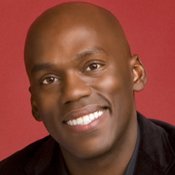For most, the words "separate, but equal" bring up dark memories of segregation and racism that haunt the South's past. But when filmmaker Shawn Wilson decided to find out more about his family history, he found a much brighter definition of the phrase.
Wilson, a Greenville native, lost his mother when he was a child and moved away from Greenville soon afterward. He had only one old photograph of his mother, which he knew was taken by fellow Delta native Henry Clay Anderson, who once had a photography studio in Greenville.
The filmmaker, now a resident of New York City, decided in the mid-'90s to find Anderson and try to get a copy of the photograph of his mother.
"He explained that he had retired probably 40 years ago and that he'd thrown most of his work away. But something inside of me sort of said to push him to see what little work he had saved. I thought, 'Well, if he had taken that one photograph that was so special to me of my mom, that he must have taken others that would be special for other people,'" Wilson said.
Wilson pressed Anderson to let him see what photos he had saved until the photographer gave in and invited him back to Mississippi.
So, Wilson returned home to Greenville for the first time since his mother's death, almost 15 years earlier.
"It was probably a few hundred vintage prints and then a few thousand negatives, most of which were in a box under his old sink in his darkroom corroding," Wilson said.
What he found in Anderson's work was evidence of a life he never knew existed. The photos showed African Americans living healthy, happy lives in Greenville during the era of segregation.
"When you think about a black community in Mississippi and the Civil Rights Movement, the focus has mainly been on the strife, the struggle, the poverty, the oppression, and very little has been on the mere fact that there were reasons to celebrate. This community was thriving during that time in ways that it's not today," Wilson said. "I was totally blown away by it. I had no idea that this sort of life or this sort of community had existed in Mississippi. I was just moved."
When Wilson's friend, and eventual director of photography on his documentary, Sean Souza, saw the photos, he told Wilson that he needed to get the people in these photos on film. He needed to tell their story.
So Wilson did. The outcome was "Separate, But Equal."
"My goal with this film is to build community esteem, to travel the nation with it, building community esteem one screening at a time," Wilson said.
The Martha's Vineyard African American Film Festival presented the film, which Wilson and executive producer Martin Eiden funded out of their own pockets, in August. There, it won the HBO Best Documentary Film award.
"I was totally shocked. I knew I was nominated, but it's such a small film that I didn't think it would have the potential to compete against the other, larger films in that same category, one of which was 'The Barber of Birmingham.' I don't know if you know that film, but that film has gone on to be nominated for an Academy Award," Wilson said.
"I feel like I'm bringing the film home to Mississippi. I think people in Mississippi will appreciate it most, because it's a part of our history that hasn't been shared," Wilson said.
See Shawn Wilson during a panel discussion on Anne Moody tonight at 6 p.m. at Jackson State University's H.T. Sampson library. For information call JSU at 601-979-2121.


